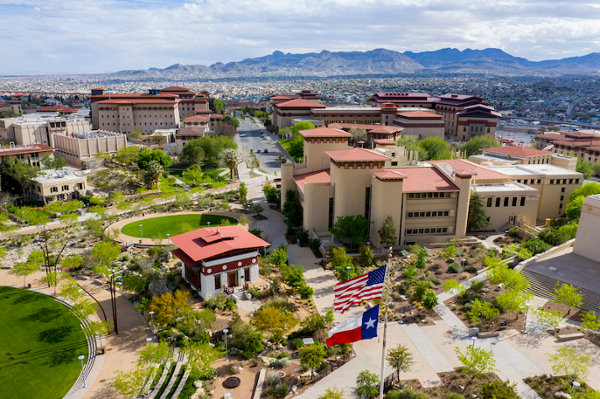UTEP researcher awarded grant to provide clean water to marginalized Texans

EL PASO, TX – Ivonne Santiago, Ph.D., an associate professor in the College of Engineering at the University of Texas at El Paso (UTEP), has received a grant to support her ongoing work to provide thousands of homes and dozens of schools across the state with access to clean, reliable water sources.
The grant of nearly $115,000 comes from Texas Water Trade, a nonprofit organization dedicated to leveraging market knowledge and technological innovation to provide water for all Texans.
The support awarded to the UTEP researcher is part of the “Clean Water for All Texans” initiative, which aims to end water poverty for the state’s most underserved residents. For the past nine months, Santiago has worked with community organizations in Dallas, Houston, Harlingen and El Paso to gather information to develop a subscription service to deliver, install and maintain point-of-use filtration systems to vulnerable Texas communities that do not have access to a clean water source.
“We are developing systems that are cost-effective and can provide clean water in areas with or without indoor plumbing, or with a contaminated water source,” Santiago said. “It’s one of the ways we are building equity in access to clean water and improving the quality of life for the communities we serve.”
This is the latest in a series of funding opportunities that have helped Santiago lead efforts to provide safe water sources to areas of the world such as Haiti, Puerto Rico and Colombia that have been hit by poverty, drought, natural disasters and other problems.
Santiago’s co-investigators include Shane Walker, professor of civil engineering and director of UTEP’s Center for Inland Desalination Systems; Alex Mayer, professor of civil engineering and director of UTEP’s Center for Environmental Resource Management; and Jeannie B. Concha, assistant professor of public health sciences.
Walker and Mayer said the project benefits from the university’s expertise in finding solutions to water resource problems present in the arid Southwest.
Concha, whose research is aimed at understanding the intersection between sociocultural factors, psychological distress and diabetes risk in underserved populations, is helping to inform the development of water services and policies across the state in an integrative and culturally informed manner.
